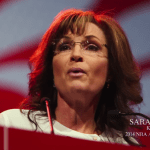I came away [from my research] convinced of two facts: Black women confront the worst relationship market of any group because of economic and cultural forces that are not of their own making; and they have needlessly worsened their situation by limiting themselves to black men. I also arrived at a startling conclusion: Black women can best promote black marriage by opening themselves to relationships with men of other races.
The economy crawls, the credit rating falls, the markets plunge, and a helicopter packed with U.S. special forces goes down in Afghanistan. Two thirds of Americans say the country is on the wrong track (and that was before the market swooned), Obama’s approval rating is 43 percent, and activists on his own side are calling him weak.
Yet Obama plods along, raising gobs of cash for his reelection bid — he was scheduled to speak at two DNC fundraisers Monday night — and varying little the words he reads from the teleprompter. He seemed detached…He reminded all that the situation isn’t his fault (the need for deficit reduction “was true the day I took office”), he blamed the other side (“we knew . . . a debate where the threat of default was used as a bargaining chip could do enormous damage to our economy”) and he revisited the same proposals he had previously offered to little effect: extending unemployment benefits and the payroll tax cut, and spending more on infrastructure projects.
One fact emerged rather starkly during the crisis, and it will likely have implications in the coming year. It is that the president misunderstands himself as a political figure. Specifically, he misunderstands his rhetorical powers. He thinks they are huge. They are not. They are limited.
His conviction led to an interesting historic moment, and certainly a dramatic one, during the debt-ceiling negotiations.
Given the toll the Great Recession has taken on what were already poor job and life prospects for inner city youth, and given the divide that increasingly leaves poor and marginal Black youth feeling abandoned by Black as well as white leaders, there is reason for concern about the potential for disturbing and violent developments. Add to this the prevalence of weapons in some circles, the organizational base that gangs provide and the ubiquity of social media, it is not unlikely that future violence in the cities would look more like flash mobs and less like the urban riots of the 1960s. Those riots targeted Black neighborhoods, Black owned stores and much of the property destroyed in the riots belonged to Blacks; any new trouble would likely be more effective at spreading the pain beyond the inner city.
But divisive as his views might have been, Hatfield was a compelling political figure throughout his life. Nixon reportedly took seriously Billy Graham’s recommendation that he consider Hatfield as a running mate in 1968 (“Well, Dick, you know who my candidate is—it’s Mark Hatfield,” Graham said. “I believe in his spiritual commitment. I believe that he’s a moderate liberal and that you need a balanced ticket because you are considered to be a conservative. You need the spiritual strength he could bring to the country. The country needs it.”) And Democrat George McGovern (with whom Hatfield had sponsored the famous eponymous 1970 amendment cutting off funds for the Vietnam War) considered him as a running mate in 1972.










